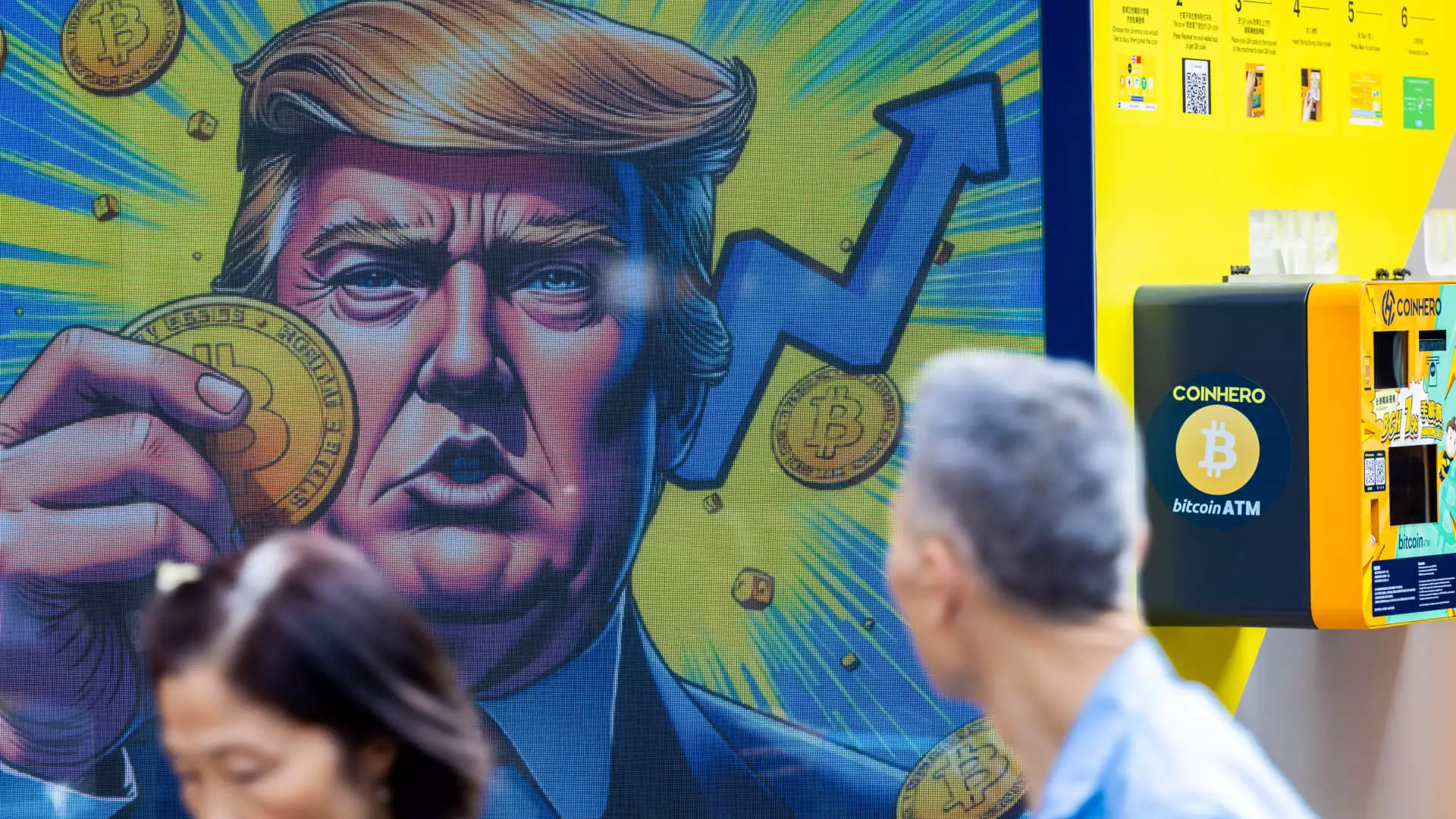The emergence of cryptocurrencies has fundamentally altered financial landscapes around the world, and the phenomena of memecoins—digital assets propelled by internet culture and social media buzz—have gained notable traction. One such coin, dubbed $TRUMP, has sparked immense controversy following astoundingly lucrative trading activities tied directly to former President Donald Trump and his affiliated entities. In what could be perceived as an insidious maneuver to exploit political celebrity for financial gain, the $TRUMP token seems to blur the lines between politics and profit.
Launched in January 2024, the $TRUMP token has garnered nearly $900,000 in trading fees in a mere two days after Trump announced an exclusive dinner event for the top holders of the token. The hastily organized event promises not only an evening with the former president but also a VIP tour of the White House. This type of promotional mechanism raises ethical concerns, as the exclusivity tied to political office seems intended to generate not just buzz, but significant wealth for Trump and his enterprise.
The Dinner that Sold Access
In an eye-catching move, the $TRUMP token’s official website showcases a leaderboard of top holders, a tactic which reinforces the performance-driven nature of the currency. The unveiling of this leaderboard and the associated dinner event produced a meteoric rise in the token’s value, prompting critics to frame it as blatant monetization of presidential access—a practice that should provoke alarm among watchdog groups and the public alike. The invitation to indulge in a black-tie dinner with Trump is not just a networking opportunity; it is a quintessential depiction of a “pay-to-play” mentality that undermines democratic integrity.
Critics like Senator Chris Murphy have expressed their outrage over this maneuver, calling it the “most brazenly corrupt thing a President has ever done.” Such statements are not made lightly. The organized dinner and promotional strategy employed by the $TRUMP token appears to exploit Trump’s position for financial gain—an alarming reality that transcends mere market speculation.
The Ethics of Financial Interests in Politics
While other presidents have navigated the choppy waters of financial interests, Trump’s administration has demonstrated a unique disregard for established norms surrounding presidential conduct. By maintaining control over a cryptocurrency entity that profits from trading fees and investor transactions, Trump stands in stark contrast to the precedent of former leaders who typically divest themselves of financial interests upon entering office. This radical departure from tradition raises critical questions about conflicts of interest and prospect of corruption in the sphere of public service.
Moreover, despite the apparent illegality of such maneuvers remaining vague, the ethical implications are glaring. The Campaign Legal Center’s Delaney Marsco rightfully calls this an “unprecedented ethics breach.” The expectation that all public servants approach their office devoid of personal interests is not just a standard; it is the foundation of a trust-based system designed to safeguard the integrity of democratic governance.
The Risks Weighing on Investors
Investors in the $TRUMP token certainly face a labyrinth of risks, particularly since a staggering 80% of its supply is controlled by the Trump Organization and its affiliates. Although a vesting plan is theoretically intended to shield retail investors, such measures commonly lack the reassurance one might expect. The vesting schedule’s effectiveness is contingent on the machinations of its creators, who maintain significant leverage over market activity. Therefore, concerns about “rug pulls” and abrupt market destabilization loom large, especially for those who may not recognize the nuances of meme-based currencies.
Critics have pointed out potential ties between $TRUMP investors and foreign exchanges linked to banned cryptocurrency platforms. The shadowy and often unpredictable landscape of cryptocurrency poses additional barriers to transparency, further complicating the ethical landscape upon which the $TRUMP token resides. Scrutiny is not only warranted but necessary, as confidence in the legitimacy of trading activity erodes with every revelation of dubious connections.
The Shift in Political Narratives
The former president’s pivot from skepticism to vigorous advocacy for cryptocurrency exposes a landscape ripe for exploitation. Trump’s newfound championing of digital assets reflects a strategic reshaping of political relevance to accommodate the burgeoning sector, all while courting substantial financial support from cryptocurrency backers. The dynamic is worrisome, as it positions financial interests as a central pillar of political strategy, relegating traditional accountability mechanisms to the periphery.
While Trump’s previous skepticism seemed logical given the volatile nature of digital currencies, his current narrative employs an entrepreneurial flourish that may serve not only to invigorate his political base but also to bolster his personal financial health. As the dialogue surrounding regulation and governance deepens in the wake of this unprecedented blending of politics and cryptocurrency, American voters must confront the uncomfortable reality of alignments that once seemed inconceivable. The lines between public service and mercenary interests have never appeared so perilously thin.

